Cookson: No cases of heat exhaustion at Worlds
UCI president assesses decision to host showpiece event in Qatar
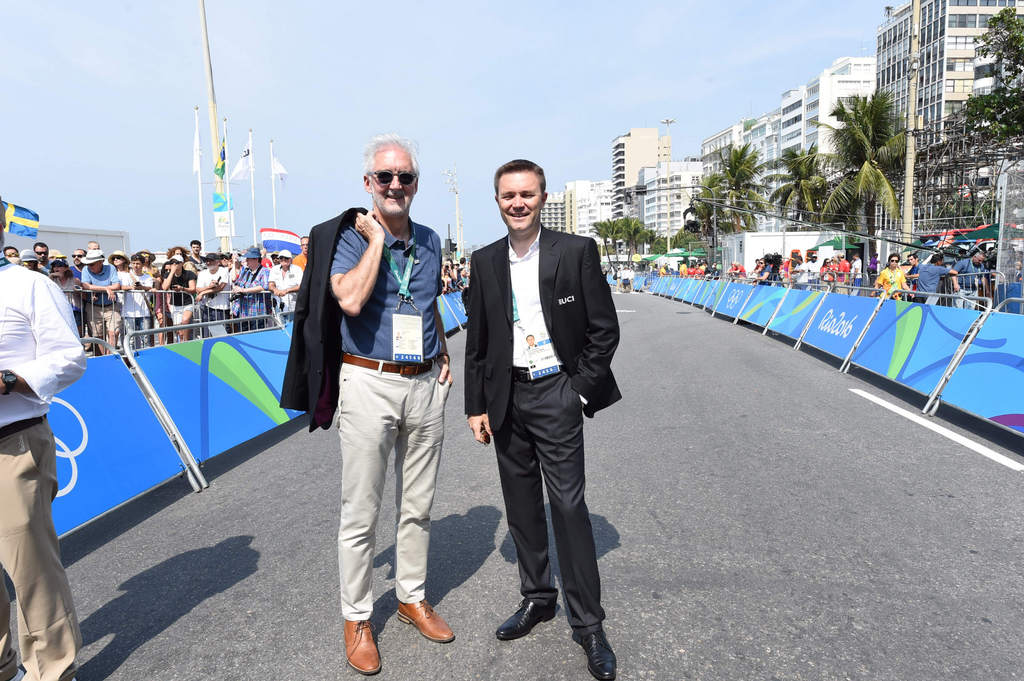
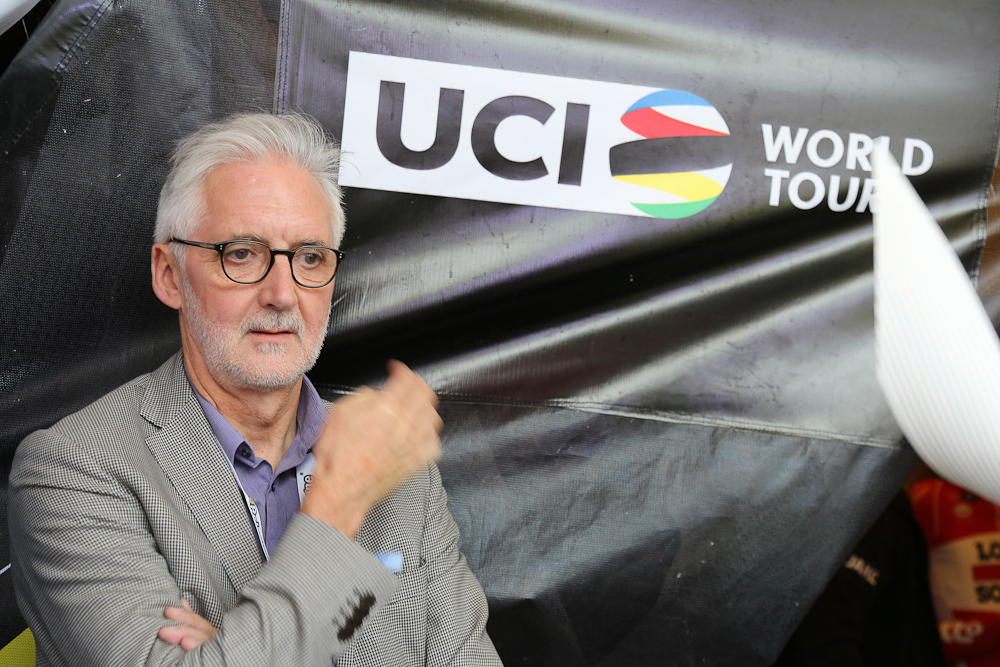
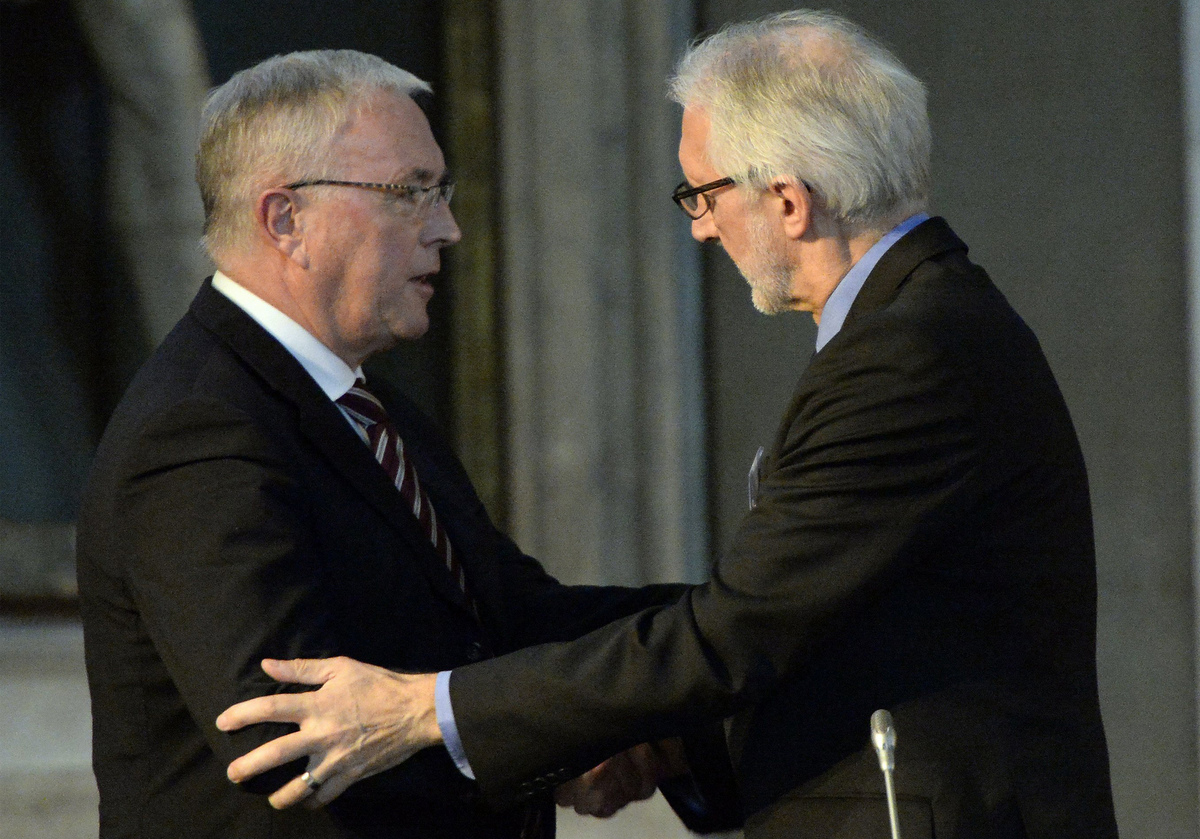
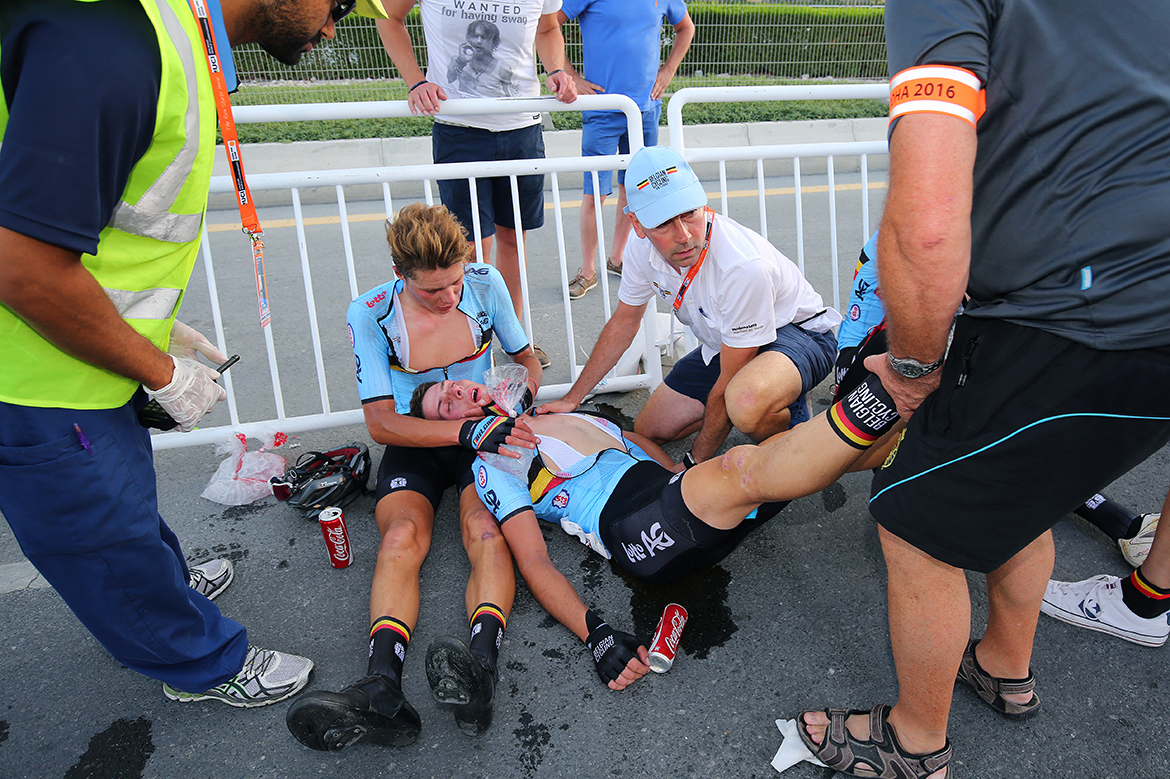
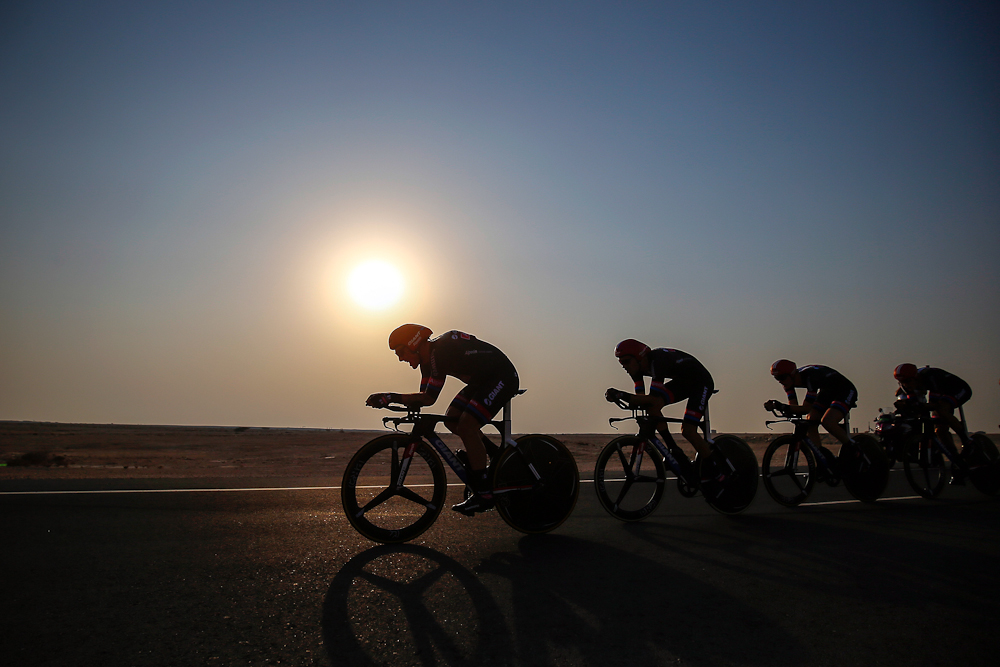
It came as news to those who watched Norwegian rider Iver Knotten collapse on the roadside during Friday's junior men's road race, seemingly due to the effects of racing in such high temperatures, but UCI president Brian Cookson told reporters on Saturday that there have been no cases of heat exhaustion at this week's World Championships.
UCI ready to shorten road races in extreme heat at World Championships
World Championships: Heat plays havoc with women's team time trial
UCI Road World Championships: Conditions remain a heated question in Doha
How race doctors help protect riders against heat at the World Championships in Qatar
U23 rider Wouters recovered after collapsing in heat at Worlds in Doha
Cookson: UCI has faced challenges 'bravely and robustly'
Cookson defends TUE system as being more rigorous since Wiggins' applications
"We have not had any cases of heat exhaustion or heat stroke, as I've been advised by the medical team. We've had plenty of cases of exhaustion, plenty of cases of riders being extremely fatigued, which you get at any World Championships, but no actual cases of heat exhaustion, so I'm advised by our medical team," Cookson said at a press conference.
In strictly literal terms, that may be the case, at least for the more serious condition of heat stroke – the hallmark symptom is a body temperature in excess of 40.6 degrees Celsius – but it seems quite a stretch to suggest that the soaring temperatures were not a key factor in the collapses of riders such as Knotten or Belgian junior Jasper Philipsen. Or, as Norway junior coach Kai Lexberg told procycling.no of Knotten's ailment on Friday: "It was simply a heat collapse."
There were concerns at the beginning of the World Championships that the temperatures in Doha this weekend would be so high as to force the shortening of the elite men's road race to just 107 kilometres. 24 hours ahead of the main event, however, Cookson confirmed that it will go ahead in its unabridged form of 257.3 kilometres, with the 150-kilometre out-and-back loop into the desert preceding the finale on Doha's Pearl.
"We have a contingency plan in place but it is just that: a contingency plan," Cookson said. "As at this moment in time, it doesn't look like it will be needed. The full distance will be raced."
Along with the weather conditions and the demands they have placed upon competitors, the abiding image of these Worlds thus far has been the paucity of spectators at the roadside, a weighty absence that has repeatedly touched upon by riders throughout the week.
"Some riders have said some positive things as well; we should bear that in mind," Cookson argued. "Obviously this is a part of the world where cycling is not an immediately popular sport, but I think we'll see a good crowd on Sunday. It is what it is. We're here.
Get The Leadout Newsletter
The latest race content, interviews, features, reviews and expert buying guides, direct to your inbox!
"I don't think we're going to be in the Gulf every two or three years for the World Championships but let's make an appraisal at the end of the week. We've got to bear in mind it's not just about spectators on the ground, but about television images and the television audience as well."
Bid
Though not the president of the UCI when Doha was awarded the right to host these Worlds in 2012, Cookson was a member of the UCI management committee and involved in the decision-making process, given that the committee's chief functions include deciding upon future World Championships venues.
"There's a lot of interest in cycling out here. There's a lot interest in supporting, funding and sponsoring cycling by way of running events here or sponsoring and running teams. That's a good thing, I think," Cookson said.
"I think it's fair to say that this is a part of the world where interest in our sport is growing. It's still relatively small in terms of the number of spectators on the roadside but we are here. They are doing a good job for us, they're promoting the race well, the standard of organisation is high."
Since the Tour of Qatar began in 2002, other races have indeed sprung up in the Gulf, in Oman, Dubai and Abu Dhabi, while Bahrain will fund a WorldTour team in 2017. Yet the local cycling scene has not developed in tandem with the heavy financial investment from the region into top-level cycling over the past fifteen years.
Just three Qatari riders participated at these Worlds, at junior and under-23 level, for instance, and there were no female competitors from the host nation. For the prestige of bringing the Worlds to Doha, however, Qatar was willing to pay out more than any other host in history.
"The decision to come here was made four years ago, there was a lot of discussion about it at the time and a very substantial fee was paid to the UCI, there's no secret about it," Cookson said. He was later asked to confirm the fee. "I think the figure was around 10 million Swiss Francs. I don't think there's a huge secret about that."

Barry Ryan was Head of Features at Cyclingnews. He has covered professional cycling since 2010, reporting from the Tour de France, Giro d’Italia and events from Argentina to Japan. His writing has appeared in The Independent, Procycling and Cycling Plus. He is the author of The Ascent: Sean Kelly, Stephen Roche and the Rise of Irish Cycling’s Golden Generation, published by Gill Books.